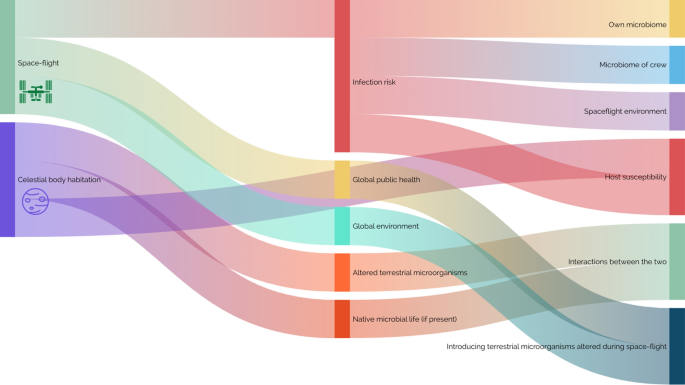Medical Astro-Microbiology: Current Role and Future Challenges
Abstract
The second and third decades of the twenty-first century are marked by a flourishing of space technology which may soon realise human aspirations of a permanent multiplanetary presence. The prevention, control and management of infection with microbial pathogens is likely to play a key role in how successful human space aspirations will become. This review considers the emerging field of medical astro-microbiology. It examines the current evidence regarding the risk of infection during spaceflight via host susceptibility, alterations to the host’s microbiome as well as exposure to other crew members and spacecraft’s microbiomes. It also considers the relevance of the hygiene hypothesis in this regard. It then reviews the current evidence related to infection risk associated with microbial adaptability in spaceflight conditions. There is a particular focus on the International Space Station (ISS), as one of the only two crewed objects in low Earth orbit. It discusses the effects of spaceflight related stressors on viruses and the infection risks associated with latent viral reactivation and increased viral shedding during spaceflight. It then examines the effects of the same stressors on bacteria, particularly in relation to changes in virulence and drug resistance. It also considers our current understanding of fungal adaptability in spaceflight. The global public health and environmental risks associated with a possible re-introduction to Earth of invasive species are also briefly discussed. Finally, this review examines the largely unknown microbiology and infection implications of celestial body habitation with an emphasis placed on Mars. Overall, this review summarises much of our current understanding of medical astro-microbiology and identifies significant knowledge gaps.
Graphical Abstract


 求助内容:
求助内容: 应助结果提醒方式:
应助结果提醒方式:


